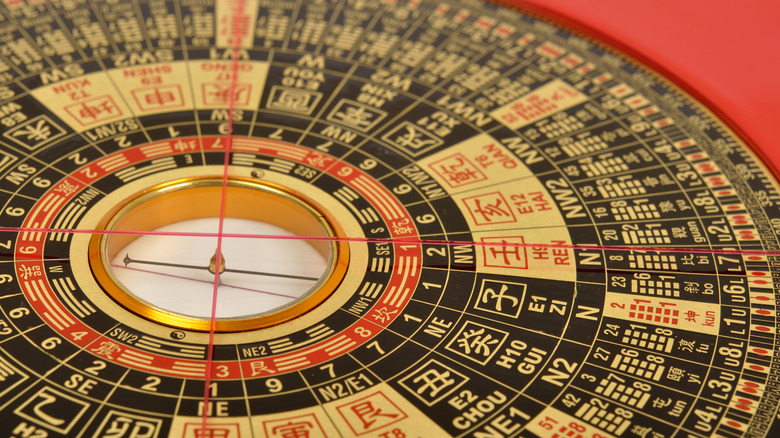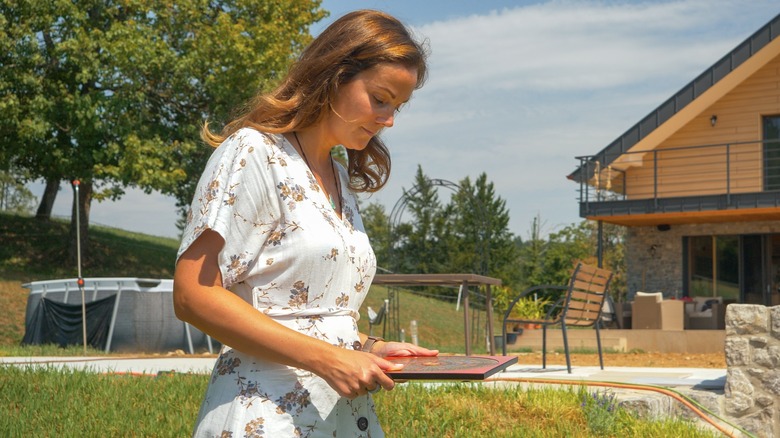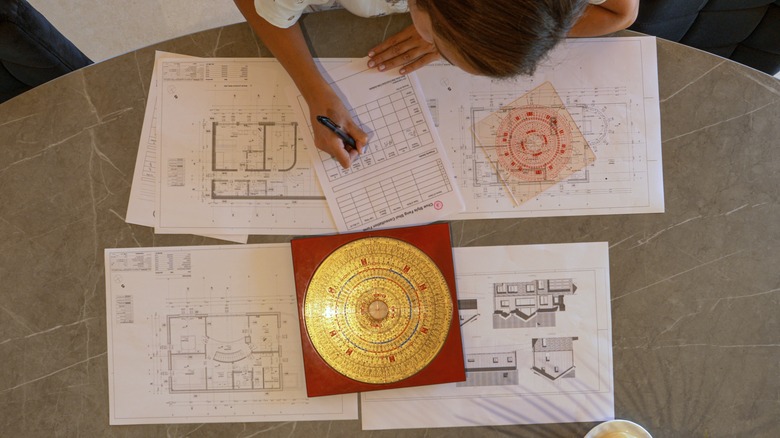What Is A Feng Shui Audit And Why You Need One
To many of us who might have never heard of feng shui before looking it up online or reading about it in a magazine, practicing the ancient Chinese philosophy might have involved rearranging furniture, adding a few plants, or hanging up crystals and wind chimes all in an attempt to attract positive energy. And in many cases, that may be enough, particularly if you're fortunate enough to have put your talismans in the right spots. But if you want to do it the right way, many practitioners will tell you it's essential to bring feng shui into your home with the help of a proper audit.
Because the practice is meant to help us live in harmony with our space and environment, the belief is that we need to calibrate our homes to be in harmony with their surroundings too. As Singapore-based Feng Shui practitioner Sean Chan says, "The purpose of a feng shui audit is to assess if the house is in tune with the laws of nature and its changes, because if it is not, it'll naturally have detrimental effects on the tenants." Bad feng shui could manifest in different ways, including problems with finances (where none might have existed before), restless and sleepless nights, fights between family members, sudden health problems, and career hiccups. And while the practice is not meant to answer all of life's problems, having your home audited might pay off in the end.
What to expect during a feng shui audit
The feng shui audit has its roots in the practice of classical feng shui, where a master first surveys the area surrounding your house to look for any factors that might influence your access to good energy. Per Chinese Metaphysics Global, the outdoor once-over is meant to take note of natural features from mountains, lakes, and rivers, as well as constructed ones like swimming pools, overpasses, and neighboring buildings.
Once the outdoor audit is completed, the feng shui master checks out your home to ensure the energy flow is optimized for its inhabitants' physical, spiritual, and material well-being. Some of the elements the expert will pay attention to include where the main entrance is, where the bedroom is, the bed's positioning, and where the kitchen is located. While each reading is specific to the house, Feng Shui Nexus says a few guidelines still need to be followed, such as the kitchen's location (neither in the front nor at the center of the home) and the stove's distance from the sink (it shouldn't be too close).
What a feng shui master needs to conduct an audit
Most classical feng shui masters are never without a luo pan or a compass, which helps them identify exactly where everything needs to be. This is because, generally speaking, the direction your house faces should be in harmony with your Chinese zodiac sign, per Your Chinese Astrology. As Victor Cheung tells House Digest, "If you look at the Feng Shui compass (luo pan), you will see that almost each measurement has unique layers and combinations of reading. That is what's used to uncover the details of your home's Feng Shui, allowing you to audit your home's Feng Shui, make adjustments and bring good Feng Shui to your home."
As a first step, Cheung says the audit will begin by identifying where your house's facing direction is. He adds, "It is extremely important to get the facing direction right. Otherwise, your whole Feng Shui audit process will be based on incorrect assumptions. Not using the right direction in Feng Shui is similar to using the wrong birth date for an astrology reading."
But not all disciplines buy into the idea that a compass is needed. For example, practitioners of the more modern "Black Hat" school make use of a bagua instead. Still, if done correctly, Chinese Metaphysics Global says your house won't need any amulets or ornaments.


